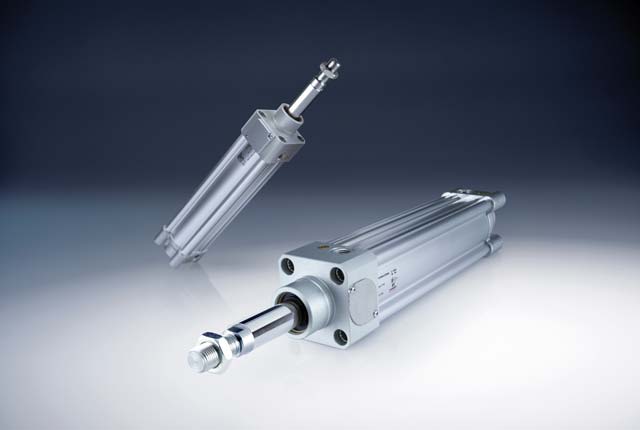
Industrial automation company Camozzi Automation Ltd has launched new pneumatic cylinders with automatic mechanical end stroke locks that ensure the cylinder rod’s safe and secure holding in both retracted and fully extended positions. Camozzi says its end lock cylinders can enhance the safety and reliability of industrial operations whilst also reducing costs and saving time.
The automatic mechanical lock feature is said to make them highly suitable for use in sectors and applications where it is essential to lock a cylinder’s position, both to avoid sliding during long stops and in situations with an absence of air, for example, in the transportation, printing & paper and woodworking industries.
The most notable feature of Camozzi’s end lock cylinders is said to be that the locking force is three times the cylinder’s thrust force, which enhances overall machine performance. This capability to withstand external forces higher than the force exerted by the piston is said to make them ideal for applications such as lifters, positioners and presses where a greater degree of safety is required compared to the more traditional rod locks combined with blocking valves. Additional variants are available that are corrosion-resistant, and suitable for use in ATEX, dirty, dusty, high and low temperature environments.
Mark Thompson, Technical Manager for Camozzi Automation Ltd, said:”This offers a cost-effective and safer solution compared to using separate components such as a standard cylinder, blocking valve and/or rod lock. It’s one component rather than several to achieve the same outcome.”
Since the cylinders are ISO 15552 compliant, they can easily replace standard cylinders without the need to modify the machinery in any way. Installation and setup time is also reduced because the locks activate and release automatically without the need for external signals and additional locking components. The locking and unlocking mechanisms happen without any delay to the movement of the rod.

